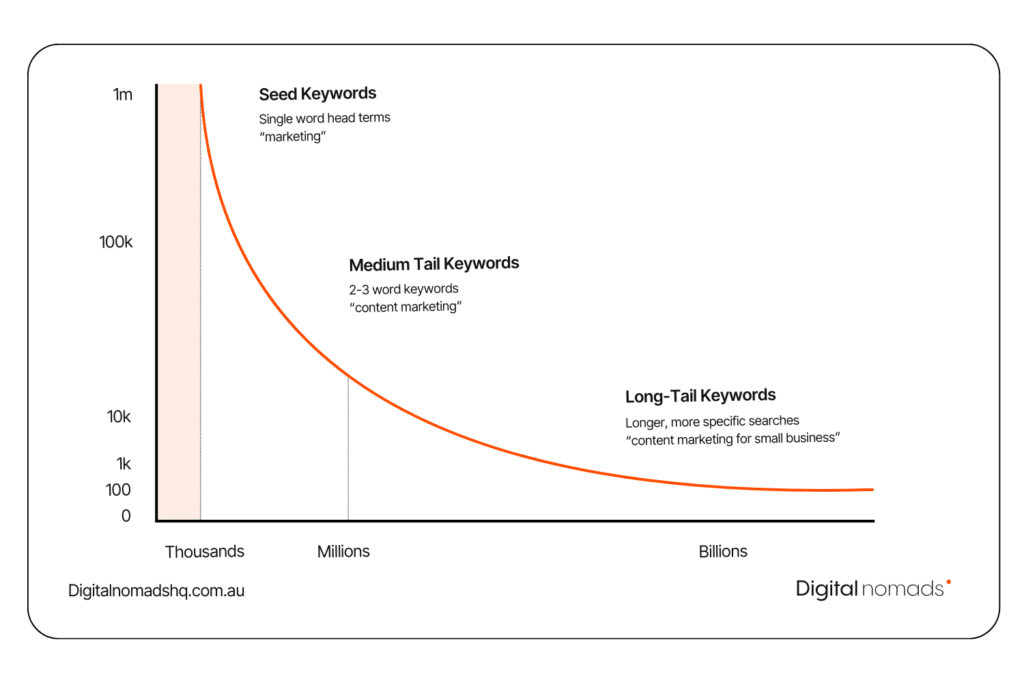What are Short-Tail Keywords?
Short-tail keywords, as the name explains, are keywords that are typically one to three words long. More specifically, they are generic, broad terms that covers an entire topic. For this reason, they are incredibly popular and drive high search volumes.
They are also known as “Head terms”, getting their name from their position in the “search demand” curve.
Short-tail keywords are typically the first search query a person will use when looking for information, after which they will move onto longer more descriptive search queries (medium and long-tail keywords)
For example:
If someone is searching for information about fitness, they might start with a short-tail keyword like “fitness” or “exercise.” These are broad, general terms that can cover a wide range of topics, from workout routines to nutrition advice and everything in between.
After their initial search, users might refine their queries to be more specific, such as “best home fitness routines” or “strength training for beginners.”
Pro tip: While short-tail keywords can bring in high search volumes, they are highly competitive and may not always attract users with specific intent.

Are Short-Tail Keywords Important?
If they are highly competitive, are they even worth it in the first place?
Yes, but not entirely for the reason you might think – short-tail keywords lay the foundation for your keyword research session. While they may be difficult to rank for on their own, short-tail keywords are “seed keywords” that can provide valuable insight into what users are searching for in your industry. From these broad terms, you can build content clusters, address user intent more directly (for both organic results and paid advertising), and improve your chances of ranking for more targeted queries.
Should You Target Long-Tail Or Short-Tail Keywords?
The answer depends on your goals and your competition.
- Short-tail keywords, being broader and highly competitive, can drive a lot of traffic but are harder to rank for due to the sheer volume of content targeting them. It is also important to note that the “volume” of a specific keyword does not translate into real world traffic.
- Long-tail keywords, on the other hand, are more specific and tend to have lower search volume, but they often attract a more relevant audience.










